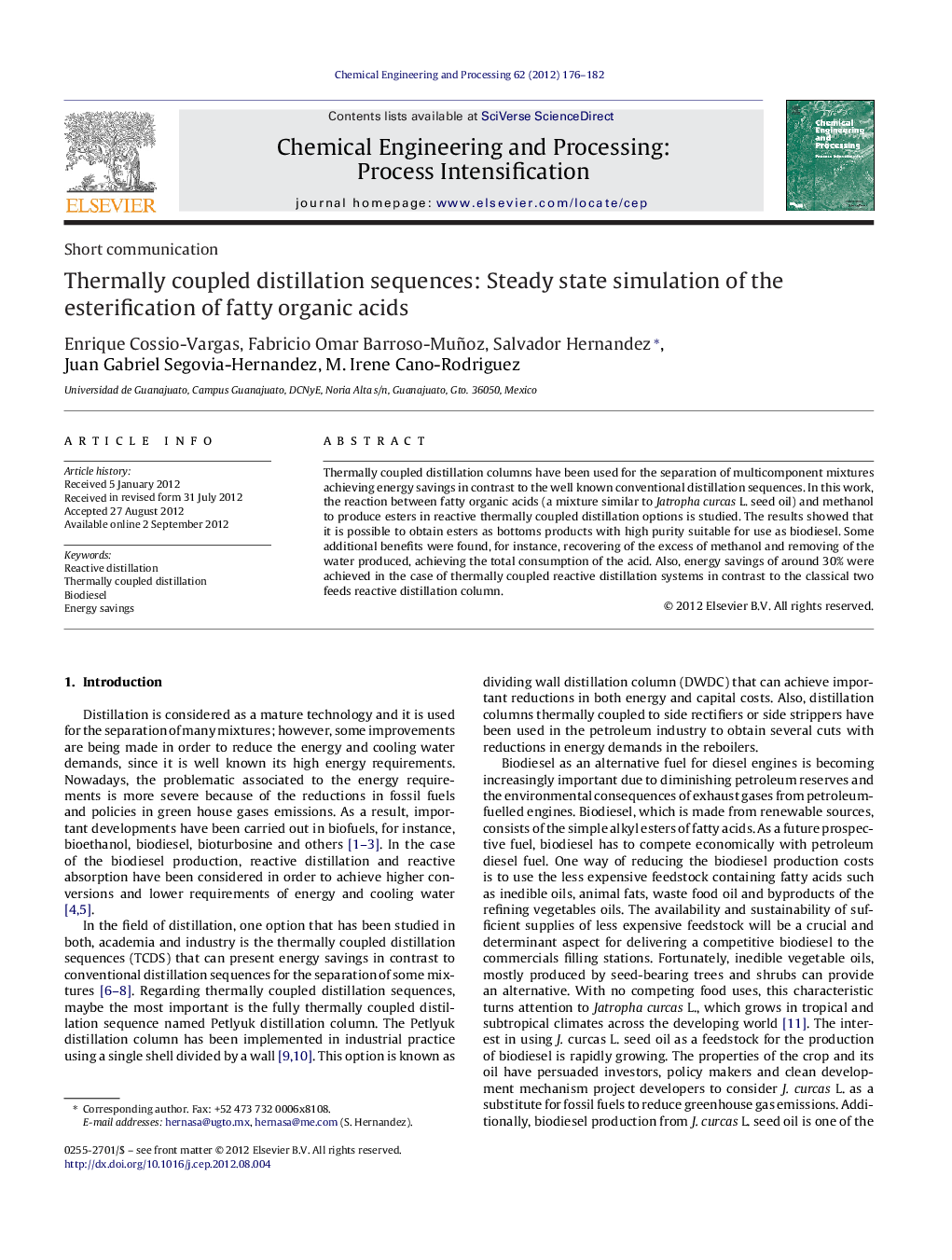| Article ID | Journal | Published Year | Pages | File Type |
|---|---|---|---|---|
| 687351 | Chemical Engineering and Processing: Process Intensification | 2012 | 7 Pages |
Abstract
Thermally coupled distillation columns have been used for the separation of multicomponent mixtures achieving energy savings in contrast to the well known conventional distillation sequences. In this work, the reaction between fatty organic acids (a mixture similar to Jatropha curcas L. seed oil) and methanol to produce esters in reactive thermally coupled distillation options is studied. The results showed that it is possible to obtain esters as bottoms products with high purity suitable for use as biodiesel. Some additional benefits were found, for instance, recovering of the excess of methanol and removing of the water produced, achieving the total consumption of the acid. Also, energy savings of around 30% were achieved in the case of thermally coupled reactive distillation systems in contrast to the classical two feeds reactive distillation column.
Related Topics
Physical Sciences and Engineering
Chemical Engineering
Process Chemistry and Technology
Authors
Enrique Cossio-Vargas, Fabricio Omar Barroso-Muñoz, Salvador Hernandez, Juan Gabriel Segovia-Hernandez, M. Irene Cano-Rodriguez,
